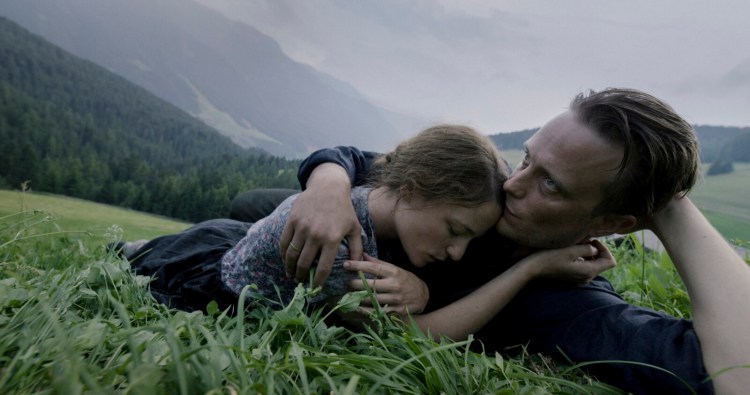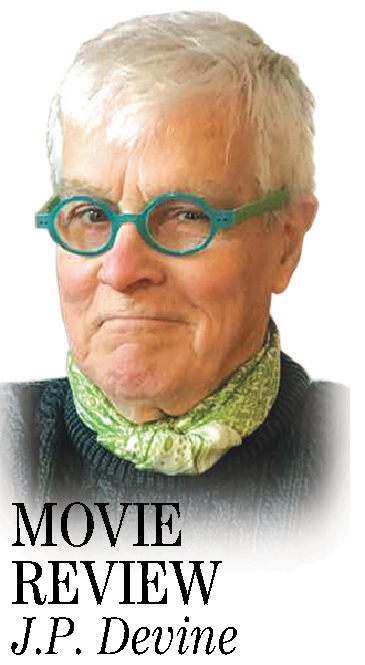In “A Hidden Life” is a vast three-hour tale that reminds us that even Nazi Germany had its dissenters who were ready to sacrifice their lives, risked the lives of their families and friends to maintain their spiritual independence and still refused to staff the barricades.
So once again, we are invited to spend a huge chunk of time with famed director Terrence Malick (“Days of Heaven,” “Badlands”), this time with his new film, which gives us a super-intense focus on one Franz Jagerstatter, who some describe as a “forgotten martyr, devout Catholic and near Saint” (Franz was beatified by Pope Benedict in 2007). Make of that what you will.
Jagerstatter, played with staggering stoicism by German actor August Diehl (“Inglourius Basterds”) is one such dissenter. Sensing that Hitler’s journey was laced with evil and was sending Europe into flaming destruction, Franz, although pre-trained for combat, dropped away back to his austere farm in the rolling hills in Austrian Alps with wife Franziska (Valerie Pachner), where he hoped to ignore the growing thunder of bombers overhead and the ominous clouds of war.
No such luck. Here in “Sound of Music”-land, Franz’s entire village is solidly behind Hitler, even the Parish priest, and soon our hero and his family are ostracized and isolated by them.
Eventually, the Nazis found Franz and hauled him back to Germany where he was imprisoned, tortured both physically and mentally and sentenced to death. All of that slowly fills the second and third hour.
Things do brighten a bit when two of Europe’s greatest actors step into frame with Matthias Schoenaerts (“Red Sparrow”) as a quiet-speaking Gestapo interrogator and Bruno Ganz (the tortured angel in “Wings of Desire”) as his final military judge in a kangaroo court. Ganz has only a few moments and fewer lines as he appears as an old-style German officer, apparently dragged back into the war as a jurist who tries to persuade Franz to reconsider his choice.
But Ganz, a master actor, has only to study Franz’s face to know that he is in the presence of an implacable stoic who will never be moved. In a single brilliant moment, Ganz, ever the master actor, slumps into a chair and lets slip a deep sigh. That’s acting.
All the actors, even the villagers in their mutterings in both German and English perform admirably.
Clearly I am not a devotee of Terrence Malick, having enjoyed only moments and passages of his three top films, but to borrow from author Cormac McCarthy, three hours of mountains, verdant slopes and Austrian folk songs is no country for old men.
This is said of the film: “It is his unwavering faith and his love for his wife, that sustains him.” Really? Franz standing firm in his beliefs while his wife and daughters were being tormented, eating cabbage and crying into rotten potato soup? How can any man, no matter how valiant, avert his eyes from family?
Malick is truly a cinematic artist and deserving of respect, but this film, for me, was worth seeing for two things. Twenty minutes of Jörg Widmer’s remarkable two-hour shots of the Alps, but most importantly, this one group of words that burn a hole into our immediate and complacent lives — “A darker time is coming,” an artist says to Franz. “Men will be more clever. They won’t fight the truth. They’ll just ignore it.” As in Franz’s time, such a time, and such men have come again. Thank you for reminding us, Terrence.
J.P. Devine, of Waterville, is a former stage and screen actor.
Copy the Story LinkComments are not available on this story.
Send questions/comments to the editors.



